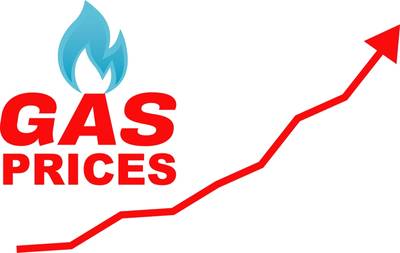U.S. Natgas up 2% on Higher Demand, Soaring Global Prices
U.S. natural gas futures edged up about 2% on Tuesday on record power demand in Texas, forecasts for more gas demand over the next two weeks than previously expected, a reduction in gas output, low wind power and much higher global gas prices.
Power demand in Texas failed to hit a new all-time high on Monday due to less hot weather, but will likely break peak use records on Tuesday and later this week as homes and businesses keep air conditioners cranked up to escape a lingering heatwave. Read full story
Low wind power forces generators, including those in Texas - the state with the most wind power - to burn more gas to keep the lights on.
That gas price increase came despite the shutdown of the Freeport liquefied natural gas (LNG) export plant in Texas last week, which leaves more gas available in the United States to refill low stockpiles. Read full storyRead full storyRead full story
Front-month gas futures <NGc1> for July delivery on the New York Mercantile Exchange (NYMEX) rose 17.5 cents, or 2.0%, to $8.784 per million British thermal units (mmBtu) at 7:13 a.m. EDT (1113 GMT).
With the U.S. Federal Reserve expected to keep raising interest rates in the coming months to reduce inflation, open interest in NYMEX futures fell to its lowest since September 2016 for a third day in a row on Monday as investors cut back on risky assets like commodities.
U.S. gas futures were up about 135% this year as much higher prices in Europe and Asia keep demand for U.S. LNG exports strong, especially since Russia's Feb. 24 invasion of Ukraine stoked fears Moscow might cut gas supplies to Europe.
Gas was trading around $28 per mmBtu in Europe and $23 in Asia. That was a 9% increase for European gas mostly on a reduction in pipeline supplies from Russia. Read full story[NG/EU]Read full story
U.S. futures lag far behind global prices because the United States is the world's top producer, with all the gas it needs for domestic use, while capacity constraints inhibit additional LNG exports.
Data provider Refinitiv said average gas output in the U.S. Lower 48 states slid to 94.9 billion cubic feet per day (bcfd) so far in June from 95.1 bcfd in May. That compares with a monthly record of 96.1 bcfd in December 2021.
On a daily basis, U.S. output was on track to drop by 1.9 bcfd to a preliminary 93.7 bcfd, the lowest since late April. That would be the biggest one-day decline since early February but traders noted pipeline flow data has shown several similar declines over the past few months and all so far have been revised substantially lower.
With hotter weather coming, Refinitiv projected average U.S. gas demand, including exports, would rise from 93.6 bcfd this week to 94.1 bcfd next week. Those forecasts were higher than Refinitiv's outlook on Monday.
The average amount of gas flowing to U.S. LNG export plants fell from 12.5 bcfd in May to 11.8 bcfd so far in June, with the Freeport outage, according to data from Refinitiv. That compares with a monthly record of 12.9 bcfd in March. The seven big U.S. export plants can turn about 13.6 bcfd of gas into LNG.
(Reuters)










